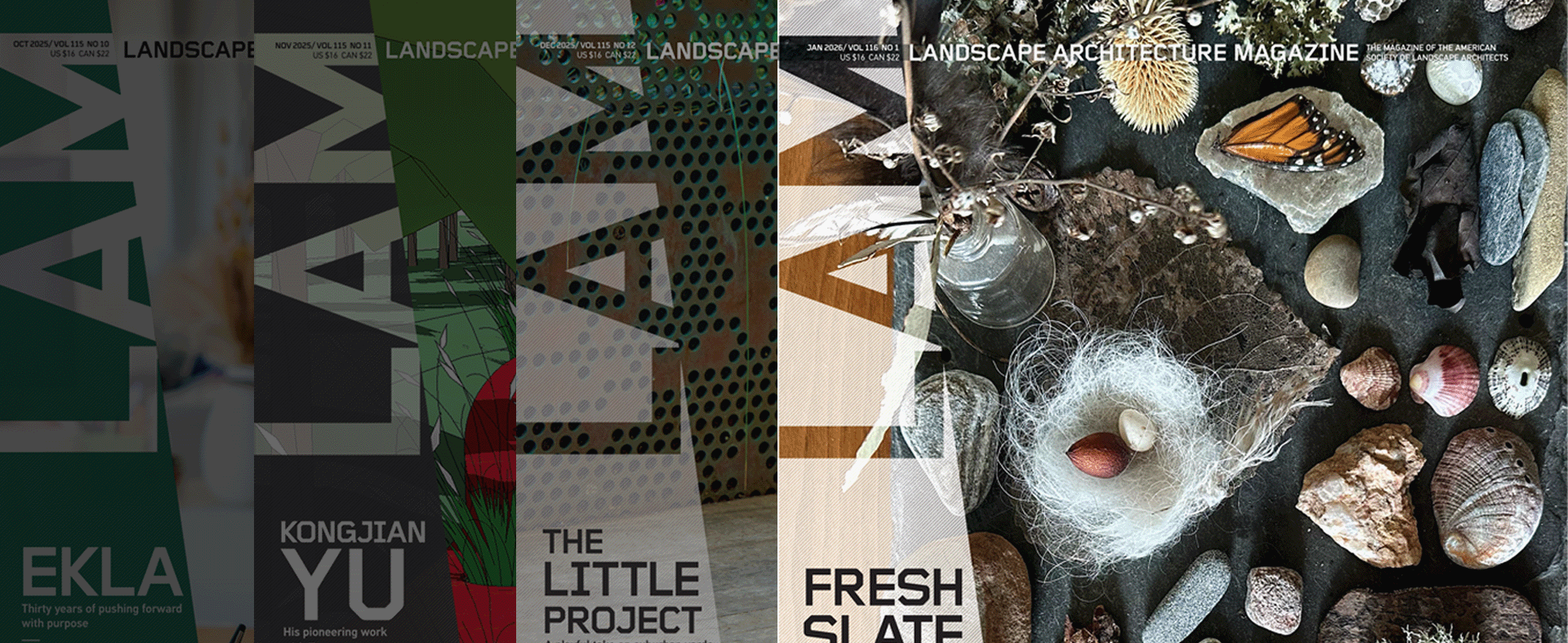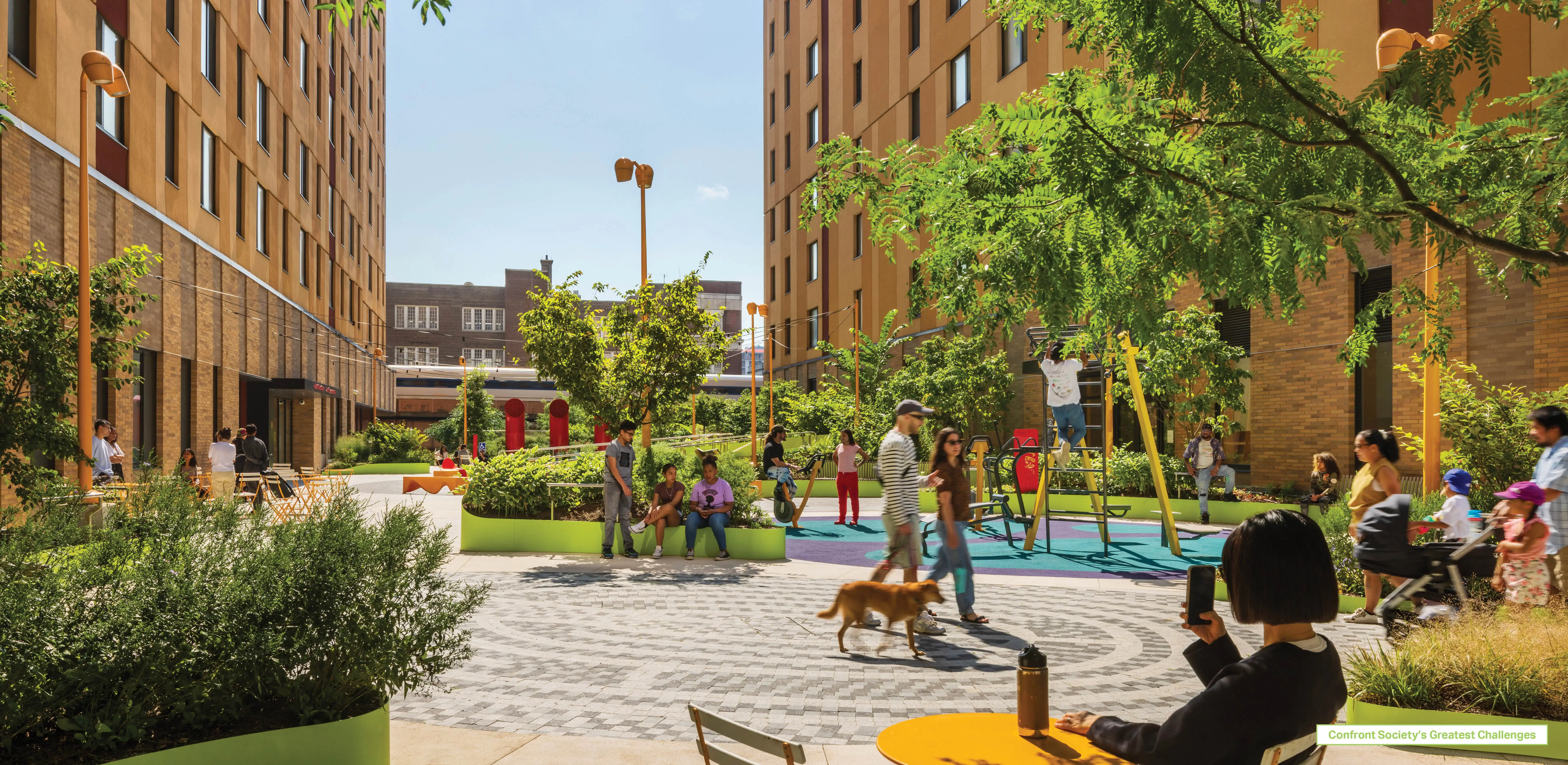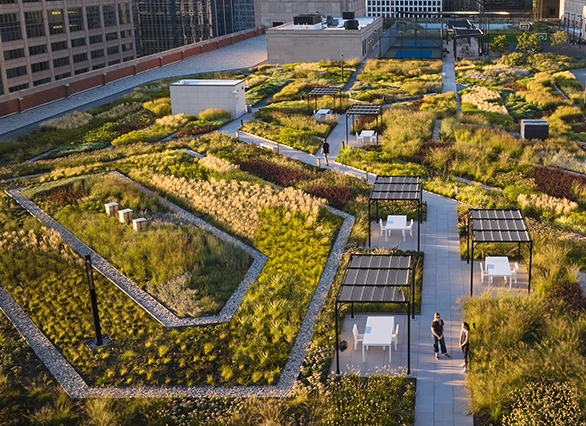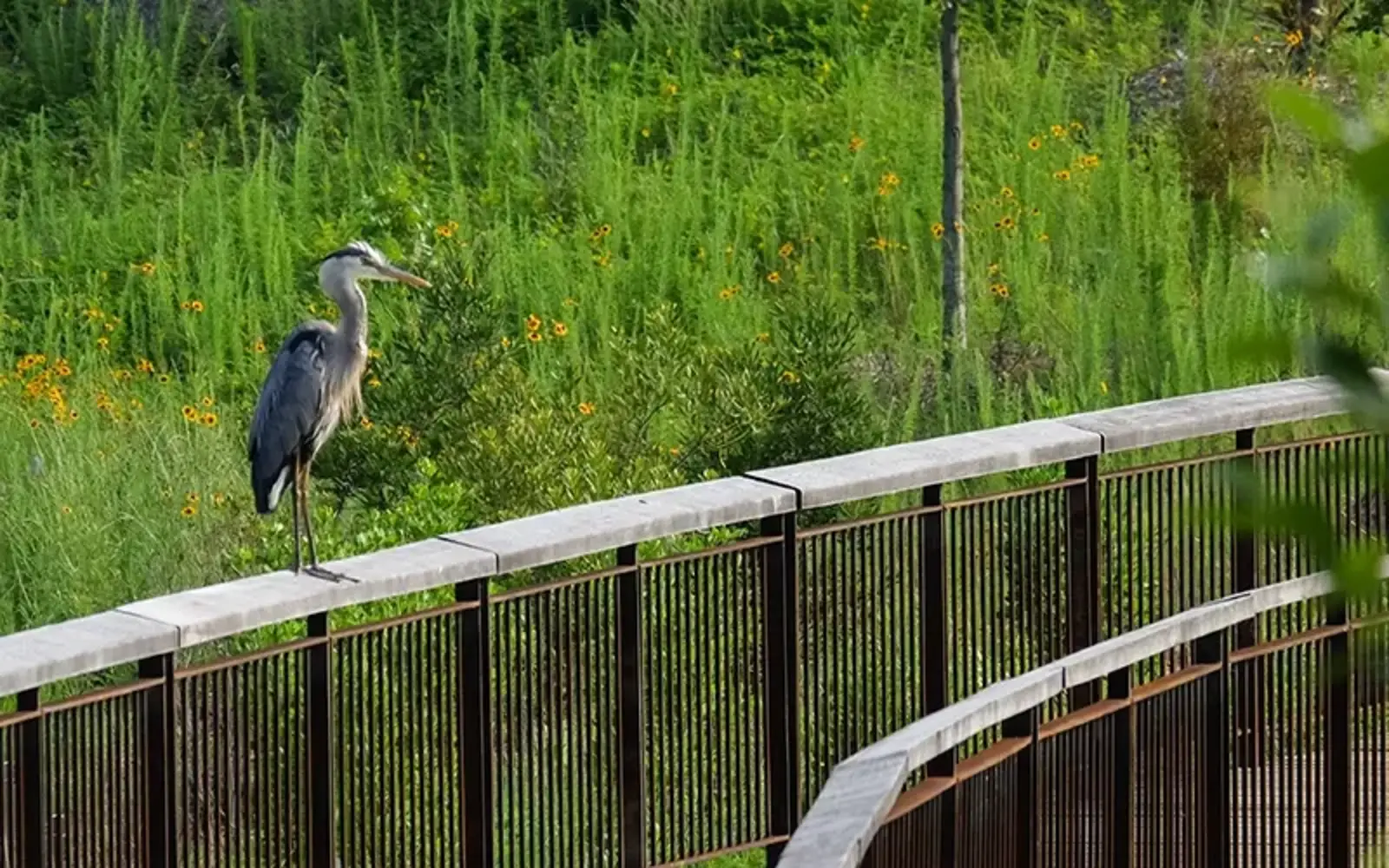Evidence for Landscape Architecture Solutions to the Climate and Biodiversity Crises
National Competitive Research Grants from The ASLA Fund
Overview
The ASLA Fund, a 501(c)(3) organization, has released new peer-reviewed research on landscape architecture solutions to the climate and biodiversity crisis.
Landscape Architecture Solutions to Extreme Heat
Dr. Daniella Hirschfeld, ASLA, PhD, Assistant Professor of Climate Adaptation Planning in the Landscape Architecture and Environmental Planning Department, Utah State University
Landscape Architecture Solutions to Biodiversity Loss
Dr. Sohyun Park, ASLA, PhD, SITES AP, Assistant Professor, Department of Plant Science and Landscape Architecture, University of Connecticut
About the Research
The reviews aggregate the most relevant peer-reviewed evidence for landscape architecture and nature-based solutions that:
- Increase the resilience of communities and natural systems to climate impacts
- Reduce or eliminate greenhouse gas emissions and increase carbon sequestration
- Conserve and restore ecosystems and increase biodiversity
- Improve water quality and management
Dr. Hirshfeld and Dr. Park examined research from a range of relevant disciplines, including scientific disciplines, and third-party verified data from projects led by academic and professional practitioners in landscape architecture or that involved significant contributions by them.
The goals of the research reviews are to:
- Understand and summarize the current state of knowledge.
- Synthesize the research literature and provide insights, leveraging key data- and science-based evidence.
- Create an accessible executive summary in plain language for policymakers, community advocates, and practicing landscape architects.
The research reviews will be used to advance research, advocacy, and communications goals with a range of audiences:
- Federal, state, and local policy-makers and regulators
- Allied professionals (planners, architects, engineers, ecologists)
- Community leaders, advocates, and activists
- Landscape architects
- Academics and scientists in other disciplines, potential research partners
- Potential donors
- Landscape architecture clients
- Landscape architecture students

.webp?language=en-US)




